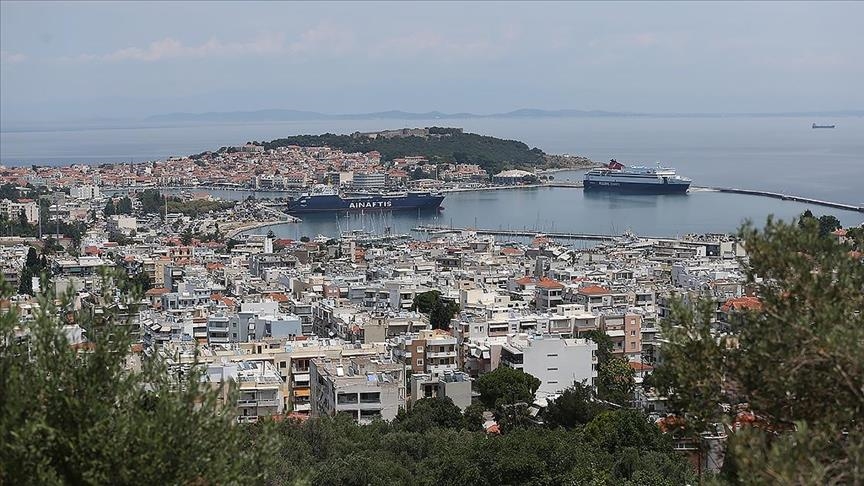
ATHENS, Greece
Greek continues to militarize islands in the eastern Aegean, in violation of both the 1923 Treaty of Lausanne and the Paris Treaty of 1947.
Despite international agreements and treaties, Greece remains keen on stationing armed forces on eastern Aegean islands, especially the Dodecanese islands and small nearby islets, including islands and islets very close to Turkiye’s western coast, including some within sight of the shore.
According to Article 13 of the Treaty of Lausanne, signed in 1923 following the end of World War I: “With a view to ensuring the maintenance of peace, the Greek Government undertakes to observe the following restrictions in the islands of Mytilene, Chios, Samos and Nikaria: (I) No naval base and no fortification will be established in the said islands.”
The Dodecanese islands were handed over to Italy with the Treaty of Ouchy signed after the 1912 Turco-Italian War and remained under Italian sovereignty until the 1947 Treaty of Paris.
With Italy taking the side of the defeated countries in World War II, the Treaty of Paris was signed with the Allied countries on Feb. 10, 1947, and these islands were ceded to Greece.
Under the treaty, it was decided that the Dodecanese islands and the small nearby islets would not be militarized.
“These islands shall be and shall remain demilitarised,” said the treaty.
Despite its numeric name, the Dodecanese does not include just 12 islands, but in fact over 20 islands, islets and, rocks.
Greece has been putting its armed forces on Aegean islands since the early 1960s notwithstanding numerous objections by Turkiye and its obligations under international agreements.
Meanwhile, while Greece accepted the mandatory jurisdiction authority of the International Court of Justice (ICJ), it made reservations to compulsory jurisdiction in relation to matters arising from military measures supposedly related to "national security interests."
By citing this rationalization in order to block a discussion of the islands’ militarization in the ICJ, Greece implicitly accepted that it had violated its treaty obligations.

Objections from Ankara
Turkiye has been reiterating its objections in this regard by making the case to various international organizations and institutions that they should take steps on the issue and to halt Greece’s actions along these lines.
The country filed a complaint about Greece’s actions that violate the demilitarized status of the eastern Aegean islands through a July 2021 letter to the UN chief.
In a letter addressed to Secretary-General Antonio Guterres signed by Turkiye's Ambassador to the UN Feridun Sinirlioglu, Ankara said: "We would like to bring to your attention once again that Greece is not fulfilling its obligations arising from the relevant agreements on the disarmament of islands in the Aegean and the Mediterranean."
The letter stressed the proximity of these islands, including Meis, to the Turkish mainland and underlined that Greece arming the islands in violation of the treaties of Lausanne and Paris posed a serious threat to Turkish security.
In the letter, Turkiye once again took a stand on the Greek violations of the islands through diplomatic channels, adding: "If Greece fails to fulfill its obligations in the agreements, it cannot assert sovereignty rights arising from agreements, including the determination of maritime jurisdictions.”
Athens, however, has stubbornly refused to halt its policy of arming the Aegean islands, in defiance of its international obligations.
In a speech, Greek Foreign Minister Nikos Dendias even underscored that Greece sees the militarization of these islands as part of its “right to self-defense.”
*Writing by Merve Berker in Ankara








